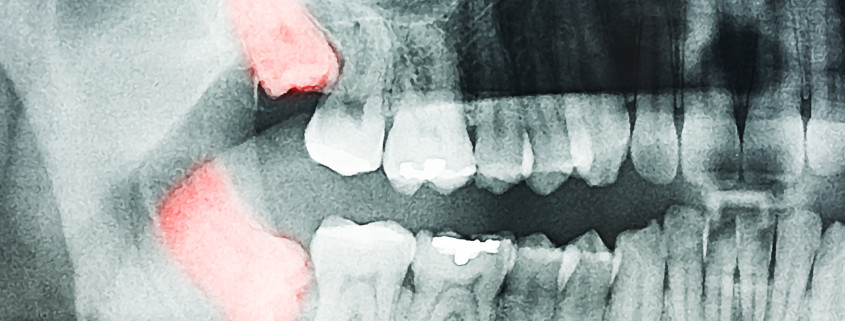Wisdom Tooth Removal
Usually beginning in your early adult years, the four or less furthest back teeth in your mouth, your wisdom teeth, may begin to give you problems. It is very common for people to have these teeth removed to prevent any overcrowding or decay. Some people have enough room in their mouths to keep their wisdom teeth without experiencing any complications or problems. So at what point is it recommended that you remove your wisdom teeth?
Impacted teeth
Impacted wisdom teeth means that the wisdom tooth is disturbing other teeth or is growing in at an odd angle, getting trapped partially under gums. This can result in pain, food particles getting stuck and tooth decay. Leaving an impacted tooth can alter the way that your teeth sit in your mouth, causing your teeth to go crooked. If you have ever had orthodontic work, this is a bad idea. Having impacted teeth is the most common reason for wisdom tooth removal.
The procedure
If it is deemed necessary that your wisdom teeth must be removed, at your scheduled appointment for your wisdom teeth extraction you will be given anesthesia to put you to sleep during the duration of the surgery. Your dentist may need to remove some gums or bone that may be covering your tooth, if necessary. Then they will be able to properly remove the tooth and sew the wound with stitches.
Recovery
Your dentist will prescribe pain medication to take during your recovery time, which usually only lasts a couple of days or so. You will want to relax during this time and eat foods that you don’t have to chew. You will want to avoid touching the wound in anyway for the first couple of days to ensure that it will heal properly. Keep and ice pack to reduce the swelling and inflammation.
Wisdom teeth removal can be a bit scary to people, but it is a very common and necessary procedure to preventative dental health. By removing your wisdom teeth, if needed, you protect yourself from future complications and infections. So do yourself a favor and check with your dentist about your wisdom teeth, just because they aren’t causing a problem now doesn’t mean they won’t in the future.
If you would like to schedule an appointment with us to determine your wisdom teeth needs, give us a call. Don’t hesitate to come to us with any additional concerns or questions.


